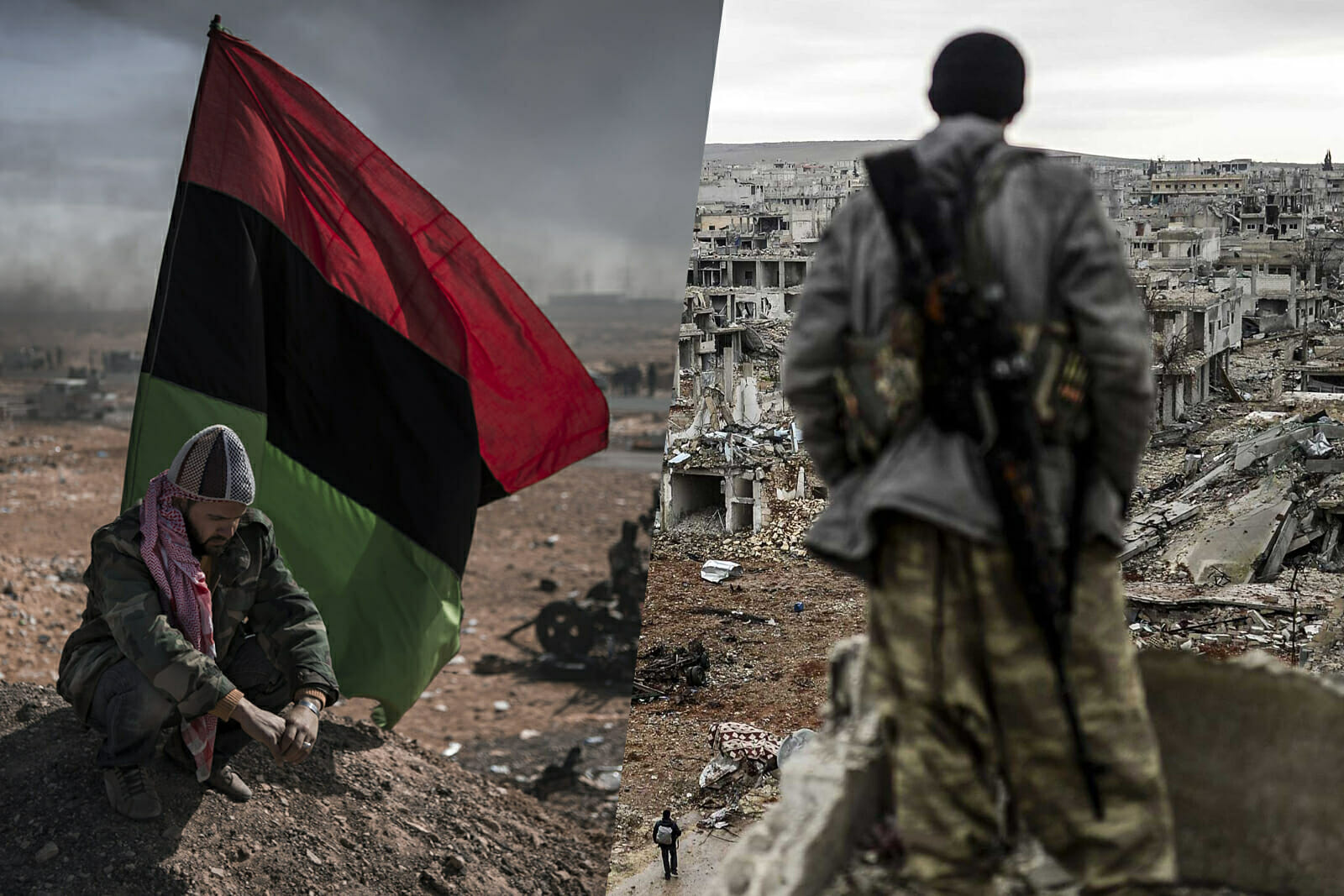
How will the Civil Wars in Syria and Libya End?
The Libyan Civil War
The two main parties in the conflict are the internationally-recognized Government of National Accord (GNA), led by Prime Minister Fayez al-Sarraj, and the Libyan National Army (LNA) led by General Khalifa Haftar. Libya has experienced political and civil instability since Muammar Qaddafi was overthrown and killed in 2011. In their article “Dignity and Dawn: Libya’s Escalating Civil War,” Daveed Gartenstein-Ross and Nathaniel Barr believe “the factors underpinning the civil war are complex, involving regional, tribal, political, and religious fault lines that often both overlap and conflict with one another to create a dizzying array of allegiances and rivalries.”
The GNA has benefitted from Turkey’s involvement in the conflict, gaining air superiority with weaponized Turkish drones. Conversely, reports show that 1,200 Russian private military contractors have been deployed to Libya in support of the LNA. Prime Minister Serraj has called for UN-brokered political talks between all parties to resume, signaling a push for a possible negotiated settlement.
Possible Military Victory
An important aspect of the civil war in Libya is its duration as the conflict approaches six years. Karl R. DeRouen Jr. and David Sobek argue “the duration of the civil war has two interesting effects on its outcome. Duration decreases the probability of a government victory and increases the probability of a treaty.” According to their data, “if the rebels can survive the first few months, their chance of winning continues to rise,” and a prolonged conflict of nearly six years does not benefit the GNA. However, the GNA has benefited from international support, specifically weaponized Turkish drones. This support played a critical role in the recent GNA offensive that led to the capture of a significant portion of the al-Watiya airbase. The airbase has served as a headquarters for the LNA to launch airstrikes on GNA forces. External support has allowed the GNA to withstand the lengthy conflict.
The complex nature of the civil war in Libya makes it difficult to determine if a military victory would be successful in creating a lasting peaceful environment. The GNA and LNA have been influenced by different ideologies and ethnicities, and both have faced internal division and fragmentation. These conditions do not make it easy to determine the likelihood of success for a regime or rebel victory. Regimes have been less successful at defeating revolutionary rebel groups, and the LNA is a revolutionary group rather than a secessionist group. However, the LNA has suffered recent setbacks (i.e. losing control of al-Watiya airbase and eight cities near Tripoli).
These GNA victories contradict what is expected in a civil war with a revolutionary rebel group. Again, most of these GNA victories have occurred following Turkey’s involvement in the conflict. The Turkish government is invested in a GNA victory, supporting a legitimate Libyan government to foster regional peace and stability.
Possible Negotiated Settlement
Out of this assessment’s four potential ends to a civil war (i.e. regime military victory, rebel military victory, inclusionary negotiated settlement, and exclusionary negotiated settlement), the least successful appears to be an exclusionary negotiated settlement. A negotiated settlement that excludes either the GNA or LNA from obtaining any political representation or security guarantee would foster resentment of the leadership within the excluded party.
Two key components to a durable negotiated settlement are including requirements for territorial sovereignty for threatened groups in the peace agreement and having third-party states or organizations provide security assurances for the former combatants. If the Libyan civil war ended in a negotiated settlement, then an inclusionary settlement would likely be the most successful. This is most likely to be achieved through UN-brokered negotiations, which the GNA has already requested.
The Syrian Civil War
The Syrian civil war was initiated in 2011 by pro-democracy protests against President Bashar al-Assad. According to the Council on Foreign Relations, “three campaigns drive the conflict: coalition efforts to defeat the Islamic State, violence between the Syrian government and opposition forces, and military operations against Syrian Kurds by Turkish forces.” Since the start of the war, more than 400,000 people have died, “as of January 2019, more than 5.6 million have fled the country, and over 6 million have been internally displaced.”
Possible Military Victory
As it stands today, the Assad regime has realistically won the civil war in Syria. The war has been fueled by ethnic and religious divisions, and ethnic-based conflicts tend to favor a government military victory. According to Michael Eisenstadt, “pro-regime forces have consistently acted with greater unity of purpose,” they have managed to develop allies across religious and ethnic divides. To this extent, the Assad regime has benefitted greatly from Russian and Iranian support. Russia has provided the regime with vital air strike capabilities, as well as arms and equipment. Assad has also benefitted greatly from Iranian support through military and financial aid. A recent ceasefire in Idlib was announced by Turkey and Russia, establishing a security corridor in Syria’s last opposition stronghold. There is a fear that this territory will come under the control of the Syrian regime, leading to the brutal treatment of the remaining Syrian population. These fears are legitimate because Syrian forces have previously attacked rebel-held territories soon after the announcement of a ceasefire agreement.
Possible Negotiated Settlement
It is highly unlikely that the civil war in Syria will end with a politically inclusive negotiated settlement. The Assad regime has gone to great lengths to crush anti-regime support, even deploying chemical weapons on rebel strongholds that have killed hundreds of innocent citizens. The only possible negotiated settlement between the regime and rebels would be politically exclusive and likely dictated by the Assad regime, thus creating a very unstable environment, further repressing a population that has already been marginalized by the current government. An exclusive settlement will act as the trigger for renewing the conflict. Additionally, the political environment lacks democratic experience and the country has been at war for years, which are both contributing factors that make exclusionary negotiated settlements fail. Based on the Syrian regime’s previous behavior following ceasefires, it can be expected that Assad will attempt to regain control of Idlib and reinforce the massacre of any remaining rebel forces.

